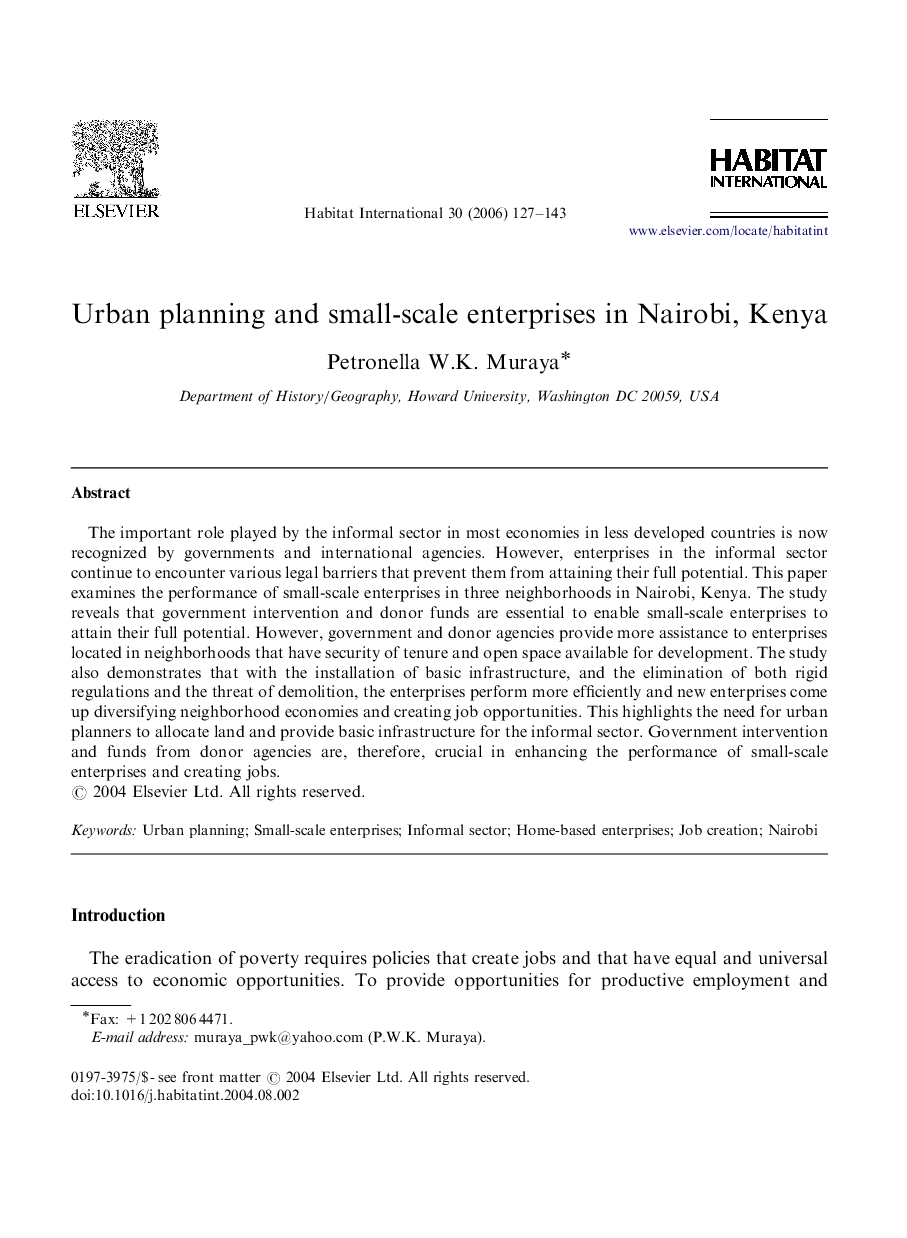| Article ID | Journal | Published Year | Pages | File Type |
|---|---|---|---|---|
| 1048462 | Habitat International | 2006 | 17 Pages |
The important role played by the informal sector in most economies in less developed countries is now recognized by governments and international agencies. However, enterprises in the informal sector continue to encounter various legal barriers that prevent them from attaining their full potential. This paper examines the performance of small-scale enterprises in three neighborhoods in Nairobi, Kenya. The study reveals that government intervention and donor funds are essential to enable small-scale enterprises to attain their full potential. However, government and donor agencies provide more assistance to enterprises located in neighborhoods that have security of tenure and open space available for development. The study also demonstrates that with the installation of basic infrastructure, and the elimination of both rigid regulations and the threat of demolition, the enterprises perform more efficiently and new enterprises come up diversifying neighborhood economies and creating job opportunities. This highlights the need for urban planners to allocate land and provide basic infrastructure for the informal sector. Government intervention and funds from donor agencies are, therefore, crucial in enhancing the performance of small-scale enterprises and creating jobs.
